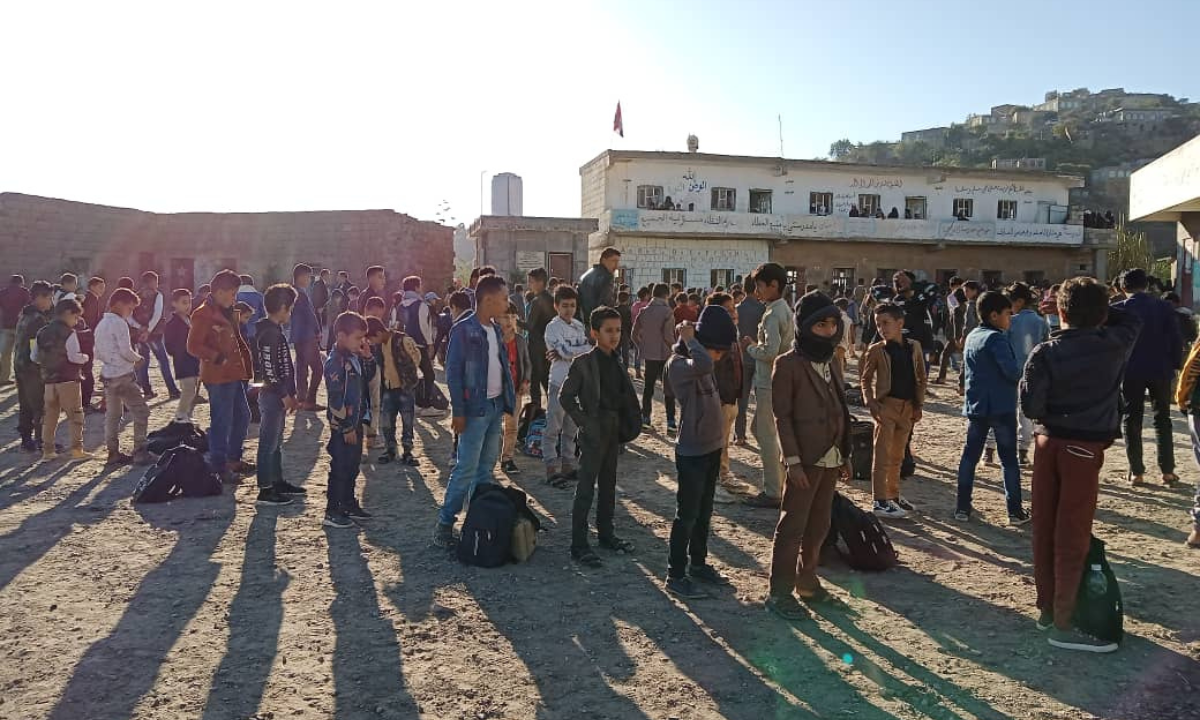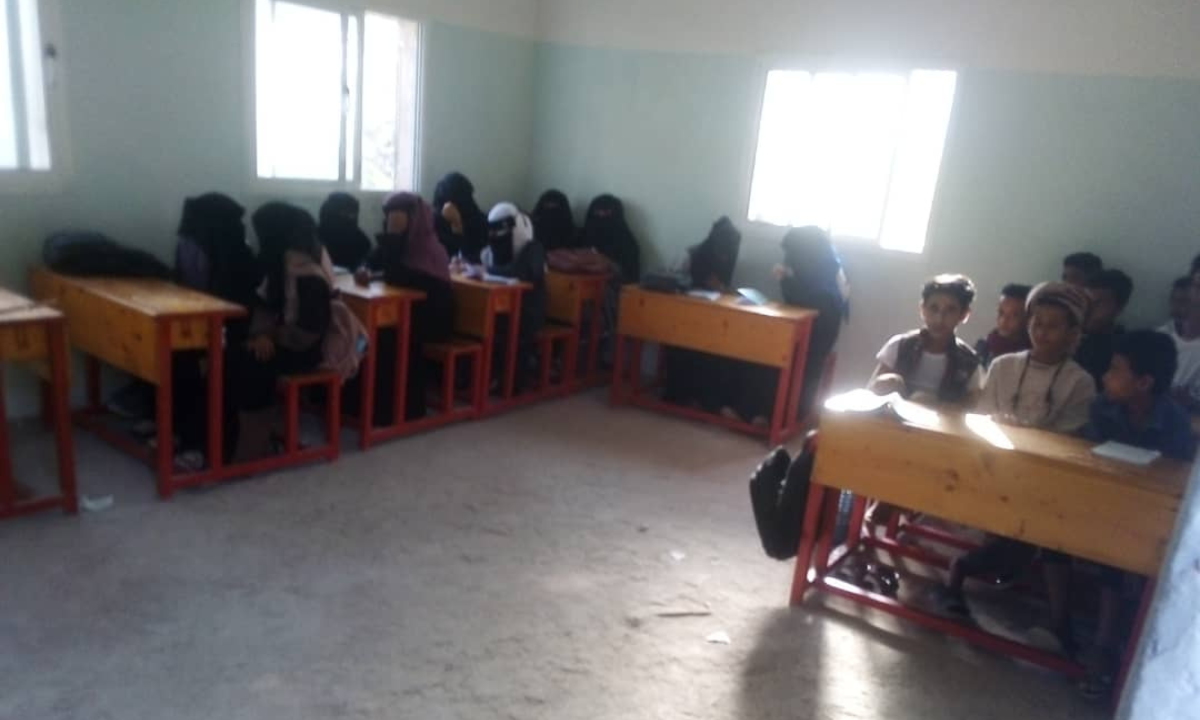How villages banded together to rebuild Yemen’s schools amid war
Why It Matters
Canada's support in rebuilding schools in war-torn countries is vital, as it helps restore educational opportunities for children, fostering hope and stability for future generations. However, it's important that local communities drive the efforts to ensure that the reconstruction aligns with their needs and culture.

This piece is published in collaboration with Egab.
For nearly a year, the first rays of sunlight each morning signalled the start of Mohammed Ibrahim’s arduous trek to the nearest high school. The 19-year-old was required to walk for miles, passing the sleepy mud houses of his village, Al-Amooqeen, in the rural Al-Sayani district of Yemen’s governorate of Ibb, to reach his school in a distant village on time.
The absence of high school facilities forced him and his peers to seek education elsewhere. For many, the difficult journey proved insurmountable, contributing to high dropout rates and adding to the myriad challenges facing Yemen’s war-torn education system.
“I wanted to finish high school, but every step of this journey felt like a battle,” Mohammed said.
Yemen’s decade-long war has left the education system in shambles. According to the United Nations, about 8.1 million Yemeni children require emergency educational support. Year-old figures by Save the Children showed that more than 2,436 schools have been destroyed, damaged or repurposed for non-educational purposes, and inconsistent pay to teachers since 2016 led to a shortage of educators.
As a result, 4.5 million children – nearly two in five – do not attend school at all. Displacement, poverty, and ongoing conflict have only deepened the crisis.
Amid this bleak reality, grassroots cooperative initiatives have emerged to fill in where the two governments fighting over power have failed. Communities across Yemen have come together to rebuild and restore educational infrastructure, offering schooling to hundreds of children who have missed out on schooling because of the war.
In 2022, residents of Mohammed’s village launched a community-led initiative to address the lack of high school facilities.
With no support from the Iran-backed Ansarullah (Houthis) governing Ibb, villagers pooled their resources, labour and determination to construct additional classrooms at the local school.
“Before this initiative, our school only served students up to primary and secondary grades. High school students had to walk for miles to continue their education, and many simply dropped out,” said Mohammed Fare’, the project leader.
The initiative began as a mere idea shared among village men during gatherings for chewing qat – a stimulant herb widely consumed in Yemen. A Whatsapp group brought together locals working abroad, well-off merchants in Ibb, and regular members of three nearby villages, and together, they managed to raise 15 million Yemeni riyals (about $86,500 CND) to give Mohammed and his peers four new classrooms. Today, Mohammed is spared the hours-long walk.
“Despite logistical challenges, including transporting construction materials over rugged terrain, the project was completed in just seven months,” explained Fare’.
Joy and pride
Educational challenges are multifaceted in a country where the inconsistent pay of nearly 190,000 teachers has forced them to take on second jobs to bring food to the table.
The situation is even more dire in rural areas like Al-Amooqeen: many schools lack basic facilities, including classrooms and qualified teachers.
The initiative to rebuild schools and classrooms, stemming from locals who knew all these hurdles best, addressed them effectively.
“A local engineer volunteered to supervise the construction process to ensure it is done correctly and safely. Every household took part in constructing these classes, with locals laying the bricks themselves, and the monthly salaries of teachers are also paid for by locals chipping in,” added Fare’.
The outcome has been rewarding.
“Seeing students from nearby villages now attending our school fills us with pride,” he said. “Their joy reminds us why we started this effort.”
In Lahj Governorate, nearly 137 miles south of Ibb, another initiative restored a crumbling school serving almost 520 students. In October 2022, parents and community members came together to repair roofs, renovate classrooms, and construct four new ones.

“The school was on the verge of collapse,” said Muath Sadeq, a parent whose son attended the school.
“During the rainy season, water would leak through the ceilings, making it impossible for children to learn. We had no choice but to act.”
Through a dedicated fundraising drive, the community collected funds and coordinated the repairs, which were completed by August 2023 in time for the new academic year.
Despite challenges like inflation and rising material costs resulting from fiscal policies impacted by internal divisions and global sanctions, they created a safe and functional learning environment.
“Our children can now study without fear of the roof caving in,” Sadeq shared, his voice brimming with emotion.
“It’s heartwarming to see smiles returning to their faces.”
Reclaiming hope
One of the most ambitious initiatives took place in Taiz governorate, a region still locked in occasional fighting. Pockets of it remain under the control of the internationally recognized government.
A group of villagers banded together to save a decrepit school from disrepair. The school’s walls were cracked, its ceilings were falling apart, and overcrowding forced some students to study under trees that shielded them from the sun and rain.
Local leader Fahmi Al-Shumairi recalls visiting the school before the renovation.
“The conditions were heartbreaking. Students were exposed to the elements, yet they clung to their education with remarkable resilience.”
Using social media, Al-Shumairi began in 2023, rallying support from expatriates and local businesses, sharing images of the public school’s dire conditions. The campaign raised roughly 12 million Yemeni riyals ($70,000 CND), enough to repair existing structures, build new classrooms, and equip the school with desks and blackboards.
“The transformation is extraordinary,” said Abdul Qawi, a teacher at the school whose students increased from 500 to 700, serving eight villages.
“Nearly 80 percent of the school has been fixed. From despair to optimism, the initiative has revitalized not just the school but the entire community,” said Fahmi.
Throughout the years of violence, which began with pro-democracy protests in 2011 to topple a long-term dictator, a generational crisis in Yemen was created. Without intervention, the country risks losing an entire cohort of educated youth.
Community-led initiatives have proven essential in countering this trajectory, offering immediate relief and long-term benefits. However, these grassroots efforts can only do so much.
Abdul Alim Sheikh, director of the education department in Mashra’a Wahdan District in Taiz Governorate, emphasized the need for a more systemic change.
“While these initiatives are commendable, they highlight the vacuum left by the government. We need coordinated support from international organizations, local authorities, and the private sector to sustain education in Yemen,” he said.
Teachers like Abu Khaldoun al-Shumairi, who helped fund a school renovation in Taiz, echo this sentiment. “We can’t do it alone. If more organizations step in, we can restore hope to countless children.”
Abu Khaldouni said the impact of their work is immediate and vital. “The smiles of children returning to safe classrooms remind us what’s at stake,” he noted. “Education is not just a right—it’s a lifeline.”


